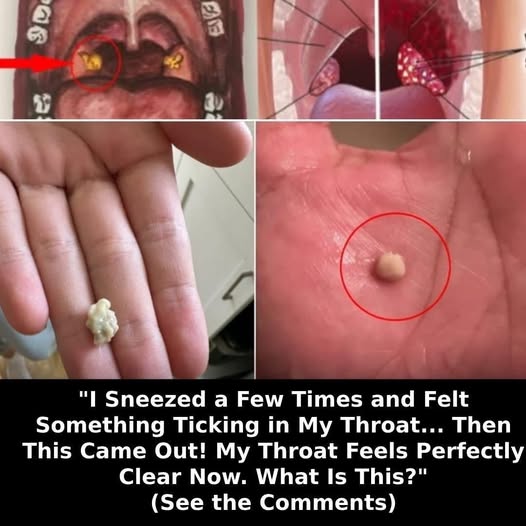If you’ve ever coughed up a small, hard, yellowish-white lump that smells awful, you may have discovered a tonsil stone (also called a tonsillolith). While these tiny formations aren’t dangerous, they can be a nuisance—and there are ways to keep them from becoming a regular part of your life.
How Tonsil Stones Form
Tonsil stones develop when bits of food, dead cells, and bacteria get trapped in the crevices (crypts) of your tonsils. Over time, this gunk hardens, creating pebble-like stones that may cause discomfort and persistent bad breath. Tonsil stones are most common in children and young adults, but anyone with tonsils can get them.
Signs You Might Have Tonsil Stones
Most tonsil stones are small and go unnoticed, but larger or multiple stones can cause:
-
Unpleasant, lingering bad breath
-
Sore throat or difficulty swallowing
-
A metallic taste in your mouth
-
Swollen tonsils
-
Ear pain or pressure
-
Chronic cough
-
Recurring tonsil infections
If any of these symptoms sound familiar, it might be time to check the back of your throat—or schedule a quick visit with your healthcare provider.
How Doctors Diagnose Tonsil Stones
Diagnosis is usually simple. A healthcare provider will look at your throat and discuss your symptoms. In rare cases, imaging or additional tests might be ordered to rule out other issues.
What Can You Do About Tonsil Stones?
Most tonsil stones aren’t serious and don’t always require treatment. But if they’re uncomfortable or smelly, you have options:
-
Saltwater gargles: Swish with warm salt water to ease swelling and loosen stones.
-
Home removal: Some people gently nudge stones out with a cotton swab (never anything sharp).
-
Medicated mouthwash: Antimicrobial rinses can help cut down on bacteria.
-
Oral irrigators: Special water devices can flush out debris from the tonsil crevices.
-
Surgery: If you’re constantly dealing with tonsil stones and infections, your doctor might suggest a tonsillectomy.
Home Remedies to Try
-
Gargle with salt water or diluted apple cider vinegar.
-
Drink plenty of water to keep your mouth moist.
-
Brush your teeth and tongue regularly, and don’t skip the mouthwash.
If you notice swelling, pain, or signs of infection, don’t hesitate to reach out to a healthcare professional.
How to Prevent Tonsil Stones
-
Keep your mouth clean: Brush, floss, and rinse with mouthwash every day.
-
Stay hydrated: Drink water throughout the day.
-
Avoid irritants: Tobacco and heavy alcohol can aggravate the tonsils.
-
Get regular dental checkups: Your dentist can spot early signs and offer advice.
Tonsil stones might be annoying, but with good hygiene and a few simple habits, you can keep them at bay. Just something to remember next time you’re brushing your teeth.

